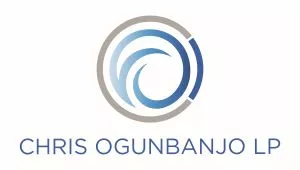INTRODUCTION
In contemporary society, banking plays a crucial role in the advancement of commerce and the society at large. The traditional banks of today have been operating in Nigeria since the colonial era. These traditional financial institutions remain the big players in the financial industry, however, there is a rise in the entry of contemporary financial institutions into the industry such that these contemporary financial institutions are serving as competition to the traditional banks. A major convenience that has been introduced into the financial industry by virtue of these contemporary financial institutions is digital banking. The Central Bank of Nigeria (CBN) as the principal regulatory body for all financial institutions in Nigeria is the go-to for any person looking to make an entry into the Nigerian financial industry. Setting up a digital bank in Nigeria involves navigating a complex legal and regulatory landscape.
In this article, we delve into the crucial steps and considerations necessary for establishing a digital bank in Nigeria as well as highlight the legal intricacies that shape this evolving industry. If you are looking to start a digital bank in Nigeria, here is the important information you should have.
WHAT IS DIGITAL BANKING?
The term "digital banking" describes the process of managing banking services and carrying out different financial transactions using electronic channels such as websites and mobile applications. In layman's terms, a digital bank operates online and provides its customers the services that were previously only available at a physical bank branch.1 Simply put, digital banking is a combination of online and mobile banking services under one umbrella.2 Digital banking offers convenience and flexibility over traditional brick-and-mortar banking by enabling users to access their accounts, transfer money, pay bills, and carry out other banking operations via a digital platform.
STEPS TO TAKE IN SETTING UP A DIGITAL BANK IN NIGERIA
The first thing to note when setting up a digital bank in Nigeria is that only a new or existing organization with a license< to offer banking or financial services can launch a digital bank.sup>3 Listed below are the steps to be taken in establishing a digital bank in Nigeria.
1. LICENSING: Promoters seeking to establish a digital bank must first understand the regulatory landscape before proceeding to set up a company. As stated earlier, the principal regulatory authority for all financial institutions in Nigeria is the Central Bank of Nigeria (CBN). As the CBN is yet to create a specific licensing regime for digital banks, companies intending to provide digital banking services may carry out same via one of the following licenses:
i. Payment Service Banks License: The objective of setting up Payment Service Banks ("PSBs") is to enhance financial inclusion by increasing access to deposit products and payment/remittance services to small businesses, low-income households and other financially excluded entities through high volume low-value transactions in a secured technology-driven environment.4 A holder of a PSB license is permitted by the license to receive deposits but cannot grant loans. The PSB license can only be obtained by already established banking agents, licensed telecommunication companies and existing fintech companies etc. This license attracts an application fee of Five Hundred Thousand Naira only (N500,000) and applicants are required to have a minimum share capital of Five Billion Naira (N5,000,000,000) to obtain this license.
ii. Payment Systems Licenses: This license categorization is meant to help promote a strong and credible payment system and offers "clarity for new and existing market participants, given the significant evolution and innovation in the Nigerian payments system."5 Payment systems licensing has been streamlined according to permissible activities into four categories by the CBN as follows:
a. Payment Solution Services: The Payment Solution Services (PSS) License is a license granted to any entity undertaking all of the permissible activities under the three categories of licenses granted by the CBN under this licensing framework. The minimum capital requirement to obtain this license is Two Hundred and Fifty Million Naira (N250,000,000). The categories of licenses under the PSS licensing framework are as follows:
1. Super-Agent License: Entities are required to have a minimum share capital of Fifty Million Naira (N50,000,000) to obtain this license. Activities permitted under this license include banking agent recruitment, management and other activities as specified in the Regulatory Framework for Licensing Super-Agents in Nigeria.
2. Payment Terminal Service Providers (PTSPs): Entities are required to have a minimum share capital of Hundred Million Naira (N100,000,000). Activities permitted under this license include the deployment of Point of Sale (PoS) Terminal services, ownership of Pos Terminals, training and support of merchants/agents and Payment Terminal Application Development.
3. Payment Solutions Service Provider (PSSPs): Entities are required to have a minimum share capital of Hundred Million Naira (N100,000,000). Activities permitted under this license include provision of payment processing gateways and portals, payment solution/application development, merchant service aggregation and collections.
b. Switching & Processing: Entities are required to have a minimum share capital of Two Billion Naira (N2,000,000,000). Permissible activities under this license include switching, card processing, transaction clearing and settlement agents' services, non-bank acquiring services, as well as activities permissible under the Super-Agent, PTSP and PSSP licenses.
c. Mobile Money Operators (MMOs): Entities are required to have a minimum share capital of Two Billion Naira (N2,000,000,000). Permissible activities under this license include e-Money issuing, wallet creation and management, pool account management as well as permissible activities under the Super-Agent license.. It is important to note that MMOs are the only entities under this categorization that are permitted to hold customer funds.6
d. Regulatory Sandbox: This category is wholly designated by the CBN to promote innovation and deepen financial inclusion. There is no minimum share capital requirement and the CBN reviews the products and solutions of applicants under .
iii. Microfinance Bank (MFB) License: A microfinance bank ("MFB") license is the most used license for the purpose of digital banking in Nigeria as it enables the holder to receive deposits and grant loans to its customers, amongst its other permissible activities.7 The MFB license, however, prohibits its holder from purchasing/selling foreign currency or from remitting funds internationally.8 The share capital requirement to obtain an MFB license ranges between Fifty Million Naira (N50,000,000) to Five Billion Naira (N5,000,000,000) depending on the category of the license. The types of MFB licenses available in Nigeria, along with the capital requirements are as follows:
a. Unit Microfinance Bank: There are two tiers of Unit MFBs namely,< strong>(a) Tier 1 (urban authorization); and (b) Tier 2 (rural authorization). Whilst Tier 1 Unit MFB license allows a holder to operate not more than four (4) branches outside the head office within five (5) contiguous Local Governments Areas, Tier 2 Unit MFB license allows a holder to operate one branch outside the head office within the same Local Government Area subject to the approval of the Central Bank of Nigeria (CBN). The minimum capital requirement for Unit MFBs is Fifty Million Naira (N50,000,000) for Tier 2 Unit MFBs, and Two Hundred Million Naira (N200,000,000) for Tier 1 Unit MFBs.
b. State Microfinance Bank: A State MFB is licensed to operate within a specific state in Nigeria or the Federal Capital Territory and can open branches and cash centers within that state or territory with the prior written approval of the CBN. The minimum capital requirement for this category of MFBs is One Billion Naira (N1,000,000,000).
c. National Microfinance Bank: A National MFB is licensed to operate across more than one state within Nigeria, including the Federal Capital Territory (FCT), and it can open branches in all states in the Federation and the FCT with prior written consent from the CBN. The CBN restricts their operation to not more than ten (10) branches. For this category of MFB, the minimum capital requirement is Five Billion Naira (N5,000,000,000).
THE APPLICATION PROCESS FOR OBTAINING A MFB LICENSE
In September 2023, the CBN announced the unveiling of an online platform for submission of MFB license applications, known as the CBN Licensing, Approval and Other Requests Portal ("CBN LARP").9 The online platform was created to replace the manual process wherein prospective applicants for MFB licenses physically submitted their applications to the CBN. Manual submissions of hardcopy applications for MFB license are no longer required as the online application is sufficient.
iv. Finance Company License: A holder of a finance company's license is permitted by the license to provide fund management services, consumer loans, asset finance (hire purchase & finance lease), project finance, debt factoring, debt securitization, loan syndication, and other forms of credit facilities, to individuals and companies. They are, however, not permitted to carry out the following activities: (a) receive deposits; (b) undertake non-financial activities such as trading, construction and project management; (c) financial services such as stockbroking, issuing house business or registrar services; and (d) foreign exchange transactions (except through correspondent banks/authorised dealers). The share capital requirement to obtain this license is One Hundred Million Naira (N100,000,000).
2. INCORPORATION AND DOCUMENTATION: Upon determining the suitable license, the next step will be setting up the company at the Corporate Affairs Commission ("CAC") and submitting all the necessary documents for incorporation. In determining the share capital requirement for the company, it is important to consider the CBN licensing capital requirement as set out above. In addition to incorporating the company at the CAC, promoters must ensure that they have the right contracts in place to protect their business and their interest in the business as well as documentation as required by the applicable regulations/guidelines. These documentations include but are not limited to a business plan/feasibility study, information technology policy, enterprise risk management framework, technical services agreement, Anti-Money Laundering and Combating Financing of Terrorism (AML/CFT) Policy, Code of Ethics and Business Conduct, dispute resolution framework and shareholders' agreement. It is important to note that there are certain categorizations of the abovementioned licenses wherein approvals-in-principle are to be obtained from the CBN before the commencement of the incorporation 10
3. PROTECTING THE INTELLECTUAL PROPERTY: The intellectual property of a digital bank such as the brand name, logos, software and source codes are to be properly protected at the appropriate registry; this is typically done at the Trademarks, Patents and Designs Registries. Confidential and sensitive intellectual property such as trade secrets and business methods may also be protected under contracts such as Non-Disclosure Agreements and Employment Contracts.
4. DATA PROTECTION COMPLIANCE: Data protection is one of the fundamental rights that is becoming a growing concern all over the world. The President of the Federal Republic of Nigeria has passed the Nigeria Data Protection Act (NDPA) 2023 which is now the primary regulatory authority for data protection in Nigeria. Promoters must ensure that they are in compliance with data protection regulations in order to enhance the security of customer information. This is in addition to the network and cybersecurity requirements of the CBN11 as well as the Confidential Data Policy that license holders are required to have in place in order to obtain the CBN's approval-in-principle.12
5. CORPORATE GOVERNANCE: It is important that companies set up to provide digital banking services adopt good corporate governance practices as provided in the CBN's Code of Corporate Governance for Banks and Discount Houses in Nigeria, the CBN's Codes of Corporate Governance for Other Financial Institutions in Nigeria and the various regulations governing each abovementioned licenses in their operations such as ensuring the board is properly constituted with at least an independent director who has no direct material relationship with the company or any of its officers, major shareholders, subsidiaries and affiliates; a relationship which may impair the Director's ability to make independent judgments or compromise the director's objectivity in line with Corporate Governance best practices,13 setting up the required board committees etc. Companies with good corporate governance practices are attractive to investors.
CONCLUSION
Establishing a digital bank in Nigeria requires a meticulous approach starting with an understanding of the CBN's guidelines and the regulatory framework governing banking operations in the digital space. It is important to engage competent legal counsel in order to properly interpret and ensure adherence to the relevant statutes and regulations. As digital banking in Nigeria continues to evolve, it is equally important to stay abreast of the developments whilst adhering to the regulations in the sector. Security of the data of customers using these online platforms should also be paramount.
Footnotes
1. Alex Malyshev, "What is Digital Banking? Meaning, Types and Benefits", (2023), https://sdk.finance/what-is-digital-banking/ accessed 31 January 2024
2. E. Napoletano, Daphne Foreman and Doug Whiteman, "What is Digital Banking", (2021), https://www.forbes.com/advisor/banking/what-is-digital-banking/ accessed 31 January 2024
3. Chiamaka D. Ogbonnaya, "Nigeria: How to Establish A Digital Bank in Nigeria", (2023), https://www.mondaq.com/nigeria/financial-services/1325542/how-to-establish-a-digital-bank-in-nigeria accessed 31 January 2024
4. Section 2 Guidelines for the Licensing and Regulation of Payment Service Banks in Nigeria
5. "CBN Approves New License Categorizations for Payment Systems", (2020), https://www.nipc.gov.ng/2020/12/14/cbn-approves-new-license-categorization-for-payment-systems/ accessed 31 January 2024
6. Ibid
7. Guidelines for the Regulation and Supervision of Microfinance Banks in Nigeria 2020, s. 2.1
8. Guidelines for the Regulation and Supervision of Microfinance Banks in Nigeria 2020, s. 2.2
9. 'CBN Unveils Licensing, Approvals And Other Requests Portal (LARP)' (Central Bank of Nigeria, 20 September 2023) https://www.cbn.gov.ng/Out/2023/CCD/CBN%20Press%20Release%20LARP.pdf accessed 1 February 2024
10. The Approved New License Categorization Requirements Consolidated
11. Regulatory Framework for Agent Banking in Nigeria 2023, s. 13.3
12. The Approved New License Categorization Requirements Consolidated
13. The Approved New License Categorization Requirements Consolidated
The content of this article is intended to provide a general guide to the subject matter. Specialist advice should be sought about your specific circumstances.



